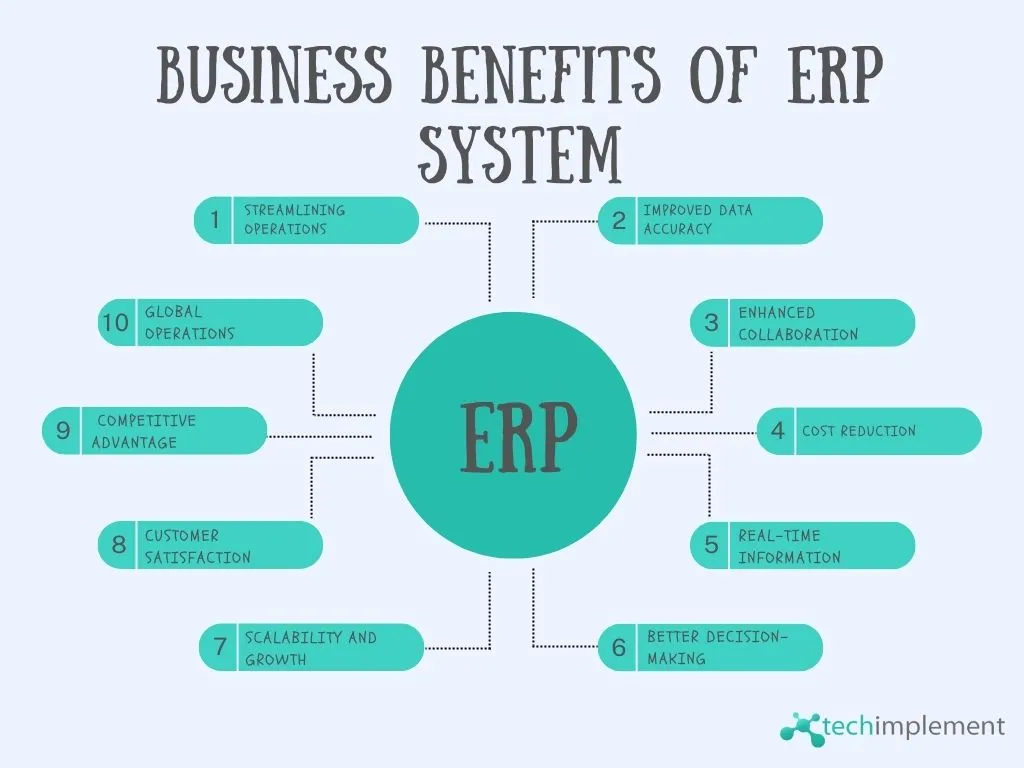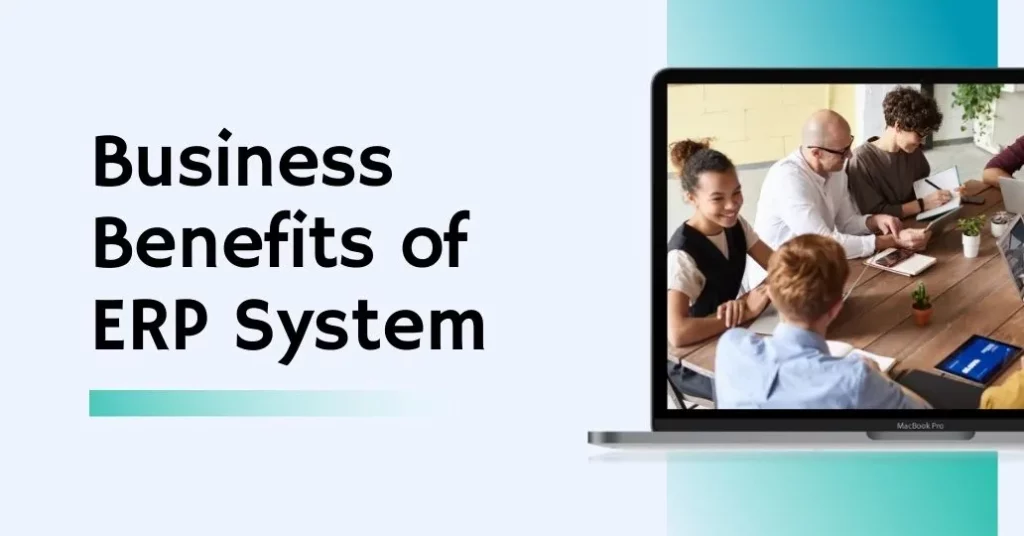Efficiency and organization are key to staying ahead of the competition. One powerful tool that can help businesses achieve this is an ERP system. But what exactly is an ERP system, and what are the primary business benefits of an ERP system? In this article, we’ll explore the primary business benefits of an ERP system.
Role of an ERP System:
An ERP system connects different departments like finance, HR, manufacturing, and more. It’s like having a super-efficient manager overseeing all the operations. From tracking inventory to managing payroll, an ERP system can do it all. It simplifies complex tasks and makes everyday processes more efficient.
Business Benefits of ERP System:
To answer your question related to what are the business benefits of an ERP system, here are these:

1. Streamlining Operations
One of the primary benefits of an ERP system is streamlining operations. With all your data consolidated in one place, employees can access the information they need without jumping through hoops. This translates to a significant reduction in time and effort spent on manual tasks. It also allows your workforce to focus on more critical, value-added activities.
2. Improved Data Accuracy
Imagine a world where errors in data entry are virtually nonexistent. ERP systems help ensure data accuracy by minimizing the need for manual data input. Automation and data validation rules reduce human errors, keeping your records clean and reliable.
3. Enhanced Collaboration
Remember the analogy of an ERP system as a symphony conductor? Well, it also fosters better teamwork and collaboration among your employees. With all departments using the same system, information flows seamlessly. Collaboration becomes second nature, leading to more productive and harmonious work environments.
4. Cost Reduction
Who doesn’t love saving money? ERP systems help cut costs in several ways. By automating various tasks and improving resource allocation, you can reduce labor expenses. Additionally, by optimizing inventory management and procurement, you can lower your operational costs.
5. Real-time Information
In today’s fast-paced business landscape, information is power. ERP systems provide real-time data, ensuring that you always have your finger on the pulse of your business. Whether it’s tracking sales, monitoring inventory levels, or assessing financial performance, you’ll be equipped with the most up-to-date information.
6. Better Decision-Making
With accurate and real-time data at your fingertips, decision-making becomes a breeze. You can make informed, data-driven choices that positively impact your business’s future. Gone are the days of making decisions based on gut feelings; ERP systems allow you to make strategic decisions with confidence.
7. Scalability and Growth
As your business grows, so should your systems. ERP systems are highly scalable, which means they can adapt to the evolving needs of your company. Whether you’re opening new locations, diversifying your product range, or entering new markets, your ERP system can grow with you.
8. Customer Satisfaction
Happy customers are the lifeblood of any business. ERP systems enhance customer service by providing quicker response times and accurate order processing. Your customers will appreciate the efficiency, leading to increased satisfaction and loyalty.
9. Competitive Advantage
Implementing an ERP system can give your organization a competitive edge by optimizing operations, reducing costs, and allowing for faster responses to market changes.
10. Global Operations
For businesses with international operations, ERP systems help manage multiple currencies, languages, and regulatory requirements, facilitating global expansion.
Conclusion:
In conclusion, an ERP system can have a profound impact on an organization’s efficiency, productivity, and competitiveness. While implementing an ERP system can be a significant investment, the long-term benefits often outweigh the initial costs, leading to a more agile and responsive business that can thrive in a rapidly changing business environment. If you need professional ERP services, contact us and we will deal with the rest of it.




